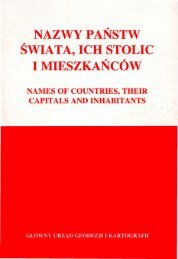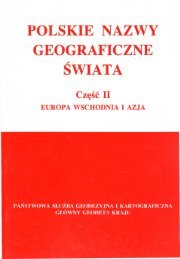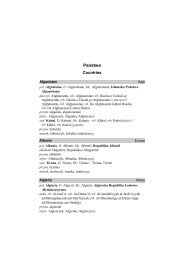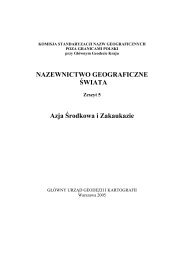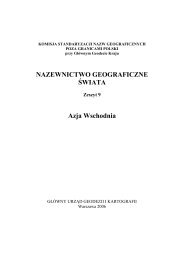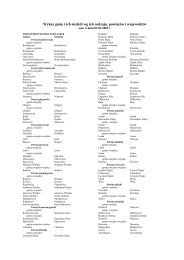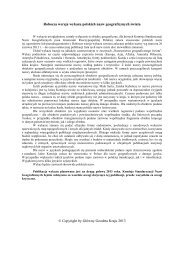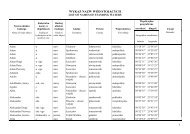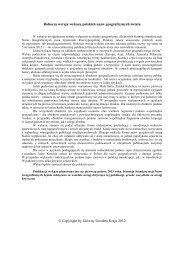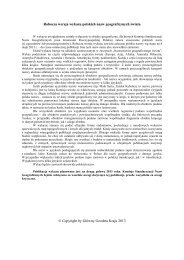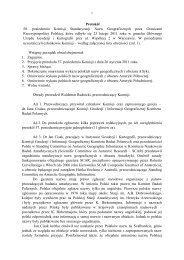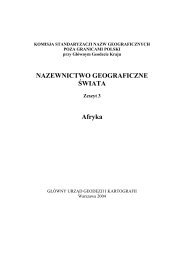TOPONYMIC GUIDELINES OF POLAND - KSNG Nazwy geograficzne
TOPONYMIC GUIDELINES OF POLAND - KSNG Nazwy geograficzne
TOPONYMIC GUIDELINES OF POLAND - KSNG Nazwy geograficzne
Create successful ePaper yourself
Turn your PDF publications into a flip-book with our unique Google optimized e-Paper software.
c. Adjectives formed from two-word geographic names spelledwith a hyphen are also spelled with a hyphen, e.g.golubsko-dobrzyński from Golub-Dobrzyń, kędzierzyńsko-kozielskifrom Kędzierzyn-Koźle.d. Adjectives formed from two independent geographic names arespelled with a hyphen, e.g. strzelecko-drezdenecki from Strzelce(Krajeńskie) andDrezdenko, warmińsko-mazurski from Warmia andMazury.3. Dialects of PolishThe Polish-speaking area is traditionally divided into fivedialectal groups: Kaszubski (Kashubian), Małopolski, Mazowiecki(Mazovian), Śląski (Silesian), and Wielkopolski. In recent researchalso two dialects spoken in the Polish-Lithuanian, Polish-Belorussianand Polish-Ukrainian borderlands are discerned. These are calledPółnocnokresowy and Południowokresowy – (of northern andsouthern borderland). It is spoken not only by the inhabitants of theseareas, but also by people who moved to the northeastern part of thecountry after the World War II. The younger generations usuallyspeak mixed dialects. The only dialectal features given below arethose reflected in geographic names.Kashubian dialect, sometimes considered a separate language,closely related to Polish. It is spoken in a small area of northernPoland in Pomorskie Voivodship. Archaic forms of names likeStarogard, Karwina are unique to Kashubian (Starogród and Krowinain the remaining areas).Małopolski dialect occupies the largest part of Poland. It ischaracterized by geminate [s], [ç] (e.g.Ossolin). The [xv] group ischanged to [f ], e.g. Falejówka from former Chwalejówka.Silesian dialect is characterized, among others, by thepronunciation of former long a as o, e.g.Żory instead of Żary.In the Wielkopolski dialect we note the difference between thesuffixes of -ov- (after a hard consonant) and -ev- (afteraformerlypalatalized consonants), e.g. Wilkowo, but Kowalewo.Mazovian dialect changes the [xv] group to [f], e.g. Falenicafrom former Chwalenica and also -ar-to-er-, e.g. [tertak] ‘tartak’.21



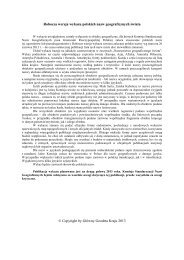
![Wykaz nazw miejscowości do mapy [plik pdf] - KSNG Nazwy ...](https://img.yumpu.com/51618887/1/184x260/wykaz-nazw-miejscowosci-do-mapy-plik-pdf-ksng-nazwy-.jpg?quality=85)
